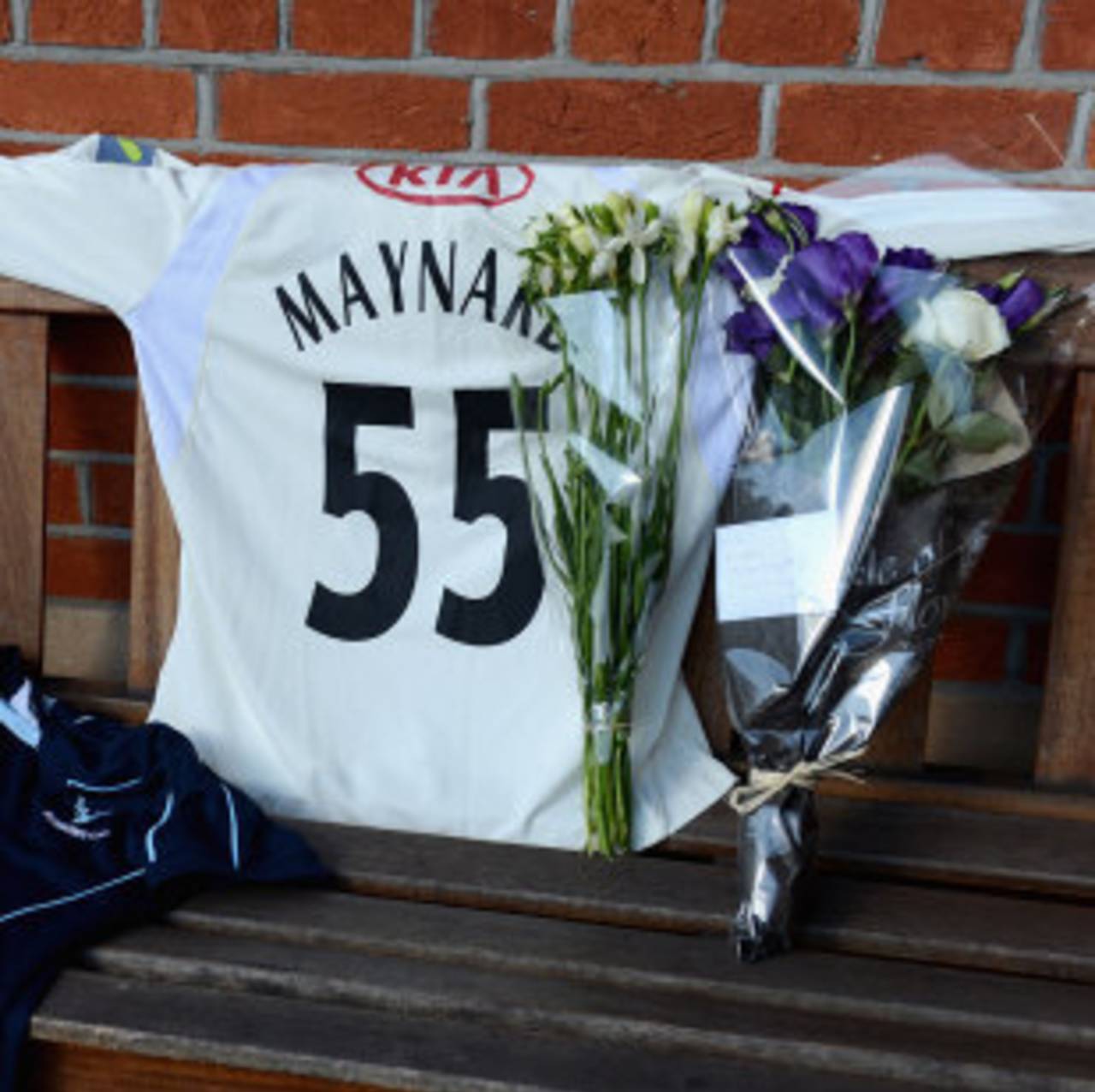ECB to target recreational drug use
The ECB is to introduce further drug testing as a result of the death of Tom Maynard in June 2012
George Dobell
Feb 26, 2013, 8:20 PM

Increased testing for recreational drug use is likely to be a legacy of Tom Maynard's tragic death • Getty Images
The ECB is to introduce further drug testing as a result of the death of Tom Maynard in June 2012. An inquest on Tuesday heard that samples taken from Maynard's body contained high levels of alcohol and traces of ecstasy and cocaine consistent with that of a "daily or habitual" drug user. In her summing up at the end of the inquest, the coroner, Dr Fiona Wilcox, urged cricket's authorities to test hair samples in order to detect drug use.
Now the ECB and the Professional Cricketers' Association (PCA), the players' union, aim to increase the amount of drug testing with a view to not just catching drug cheats but also helping those who may be suffering from addiction.
The ECB currently carries out around 200 tests a year. That means they test somewhere between 35-40% of the registered professional players in county cricket. Last year one player, Abdur Rehman, who was playing for Somerset, tested positive for cannabis following an in-competition test.
Now, however, they appear set to carry out more tests. While they have not committed themselves to hair-sample testing - one of the more effective methods of looking for drug use over a longer period - the ECB, in co-operation with the PCA, has agreed to develop an out-of-competition testing programme to encompass recreational drugs. These measures will supplement the ECB's existing anti-doping programme, which involves in- and out-of-competition testing through UK Anti-Doping, in compliance with the World Anti-Doping Agency (WADA) code, and the financial support provided to the PCA for player education and support programmes.
England players are tested, in addition, as part of the ICC's own anti-doping programme for all international cricketers, which are also WADA compliant. To date, no England player has tested positive under these programmes.
"More testing will improve our chances of helping players with a problem which is as much societal as it is sporting," PCA chief executive, Angus Porter, told the BBC. "We have a comprehensive programme of testing in and out of competition for performance-enhancing drugs - very much in line with the WADA code - testing in competition and also testing for recreational drugs.
"What we are now in discussions with the ECB on is whether we need to extend the testing for recreational drugs to out of competition and I think we both think that that is a good idea. We are working on plans for that and investigating the practicality, following sports such as rugby and football which have done similar things.
"We all think that the use of recreational drugs out of competition needs to be thought of very differently from performance-enhancing. The purpose of the taker is very different - they are not cheating and need to be thought of differently and it is too easy for people to confuse this."
As things stand, there is no mandatory ban for players caught with recreational drugs - including ecstasy and cocaine - taken from out-of-competition samples. The PCA hopes that would remain the case and, in the first instance at least, a player would be referred for treatment, counselling and support, with suspensions only applied to repeat offenders. In-competition testing is defined as being from 6am local time on the first day of a match up until one hour following the completion of the match.
Surrey conducted an internal enquiry following Maynard's death, which was ruled to be accidental after he was found on the tracks of the London Underground last summer. The club's chief executive, Richard Gould, told ESPNcricinfo that he was satisfied that Maynard's drug use was a "one off". Team-mates Jade Dernbach and Rory Hamilton-Brown both insisted that they had no knowledge that Maynard had ever taken drugs.
In a statement following the inquest verdict of accidental death, the ECB said: "While the ECB accepts that recreational drug use is a part of modern society, we do not condone it and will take all reasonable steps to prevent its use within the game. We also believe we have a responsibility to educate all our players and are committed to supporting any player who needs help in this area.
"In the light of today's verdict, ECB and Surrey CCC would like to reiterate that this incident was a terrible human tragedy and again extend our condolences to the Maynard family and to Tom Maynard's many friends and colleagues within the professional game.
"ECB and Surrey CCC would like to end by echoing the statement issued by the Maynard family earlier today. The results of this inquest do not define Tom Maynard or alter in any way the tragedy of his passing. Tom was a great man and a great cricketer and will be remembered forever by everyone who had the privilege to know him."
George Dobell is a senior correspondent at ESPNcricinfo